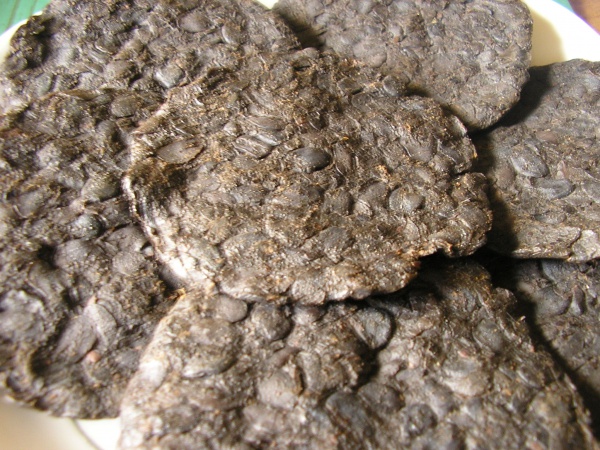Facts About Iru
Irú, also known as Eware, is a popular fermented locust bean condiment essential in Nigerian cuisine, particularly among the Yoruba and Edo communities. Similar to other fermented condiments like ogiri and douchi, Irú is a vital ingredient in traditional soups such as egusi, okra, ewedu, and ogbono. In West Africa, especially among the Manding-speaking populations, it is referred to as sumbala. The Yoruba people distinguish between two main types of irú: Irú Woro, commonly used in stews, and Irú Pete, ideal for soups such as ewedu and egusi.
Irú can be found fresh, typically wrapped in moimoi leaves, or dried and shaped into discs or cakes. Fresh irú has a robust aroma, whereas the dried version is milder though still pungent. Frying dried irú in cooking oil can significantly enhance its flavor. Additionally, dried irú stores well in the freezer, making it convenient to have on hand.
Nutritionally, locust beans are rich in lipids, proteins, and carbohydrates, and they provide an excellent source of calcium and fat, which is particularly beneficial for rural communities. During the fermentation process, the sugar content increases, and while the total free amino acids initially decrease, they eventually rise significantly.

 Niger
Niger